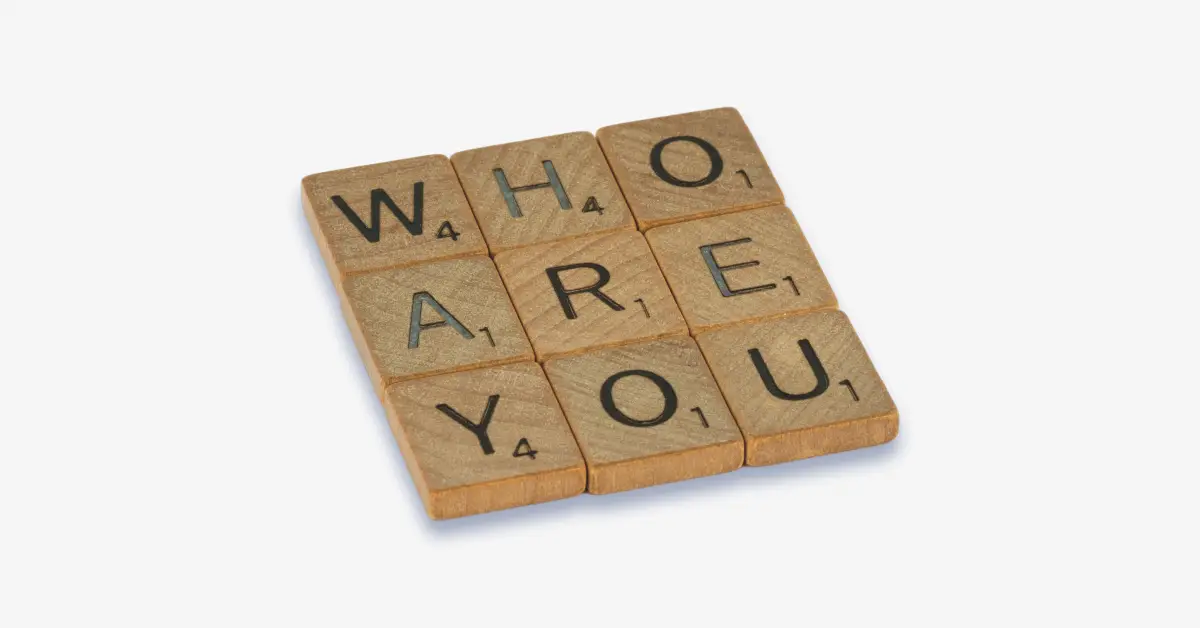Why Ego is the Enemy?
Ego is the enemy because it quietly convinces you that you’ve already made it. It doesn’t scream. It whispers lies that you’re better than you are, that you don’t need to grow, and that you’re always right. The Stoics saw ego for what it really is: a false sense of control that pulls you away from truth, humility, and actual strength.
From Marcus Aurelius to Epictetus, the message was simple: don’t believe your own hype. A wise person, they argued, sees through both praise and insult. He acts not to impress, but to align his actions with nature, reason, and self-discipline. To the Stoic philosophers, the ego was noise. The real signal was virtue, and that didn’t need an audience.
Are ego and arrogance the same thing?
The ego lives inside you. Arrogance leaks out.
Ego inflates your self importance, telling you that you’re the center of the world. Arrogancy, on the other hand, is that inflated self-image projected outward. It’s how ego performs for others. According to the Stoic definition, both are vices, not because they make you look bad, but because they disconnect you from truth.
A Stoic doesn’t need to prove anything. That’s the entire point. When you’re confident in your values, you don’t wear your worth like a badge. You live it.
What does it mean to be arrogant?
Arrogancy, to a Stoic, is a cover-up. It isn’t boldness, it’s fear in disguise. It’s the overcompensation of someone who lacks the quiet confidence that comes from inner alignment.
Ego is the enemy because it confuses arrogance for strength.
In the Stoic quotes of Epictetus, arrogance is often equated with self-deception: “It is impossible to begin to learn that which one thinks one already knows.” That’s the core danger of over confidence, it shuts the door to growth. Arrogance thrives in illusion. Confidence, when it’s real, doesn’t need applause.
Can arrogance ever be good?
What people often call “arrogance” is just self assurance, and that distinction matters. Being grounded in your values and skills isn’t arrogance. It’s clarity. It’s knowing who you are without turning it into a performance.
But once it becomes a show? That’s where you lose the plot.
Even Marcus Aurelius warned in his Meditations not to let praise “penetrate your soul.” He knew what a slippery slope it is. External validation might give you a temporary confidence booster, but it’s fragile. Real assurance comes from self-control, not self-congratulation.

What is the difference between ignorance and arrogance?
Ignorance is not knowing. Arrogance is pretending you already know. That’s the difference, and the danger.
Seneca wrote, “It is the power of the mind to be unconquerable.” But an arrogant mind is anything but. It resists growth, clings to ego, and walks in circles thinking it’s making progress.
Ego is the enemy because it trades humility for illusion.
Stoicism begins with humility. A true Stoic admits what they don’t know — and keeps learning. Ignorance can be fixed. Arrogance chooses not to. That’s not strength. That’s surrender in disguise.
Self-Worth According to the Stoics
In a world obsessed with validation, the Stoic mindset offers a radical shift: your value doesn’t come from what others think of you, but from how well you live in line with reason, virtue, and discipline.
For the Stoics, self worth isn’t a mood or a motivational quote; it’s your ethical foundation. It’s built day by day through action, not words. Through self respect, not applause. If you need the world to affirm your value, you’ve already handed over control.
The goal isn’t to “feel good” about yourself. It’s to be good, regardless of how you feel.
What does self-worth really mean?
To a Stoic, self worth means knowing your value isn’t tied to external noise, it’s tied to self belief rooted in virtue. This is the heart of Stoicism: you are not your reputation, your income, or your failures. You are what you consistently choose to do and who you choose to be when no one’s watching.
Ego is the enemy of virtue; it wants praise, not character.
Self-worth is earned, not given. Not by being perfect, but by showing up in the face of difficulty, and doing what’s right even when it’s not rewarding. Stoics didn’t talk about “loving yourself.” They spoke of being able to live with yourself.
What should I base my self-worth on?
The Stoics were clear: base your worth only on what you control. And what’s that? Your choices. Your character. Your ability to stay composed when the world tests you.
Ego is the enemy because it craves what you can’t control.
Building self worth starts by stripping away what doesn’t matter—status, recognition, likes, titles. Instead, root yourself in self respect and the Stoic beliefs that have lasted for centuries: live with courage, temperance, justice, and wisdom.
When those are your measuring sticks, you can walk through fire without losing yourself.
How is self-worth different from self-esteem?
Modern culture blurs the lines between self esteem and self worth, but the Stoics didn’t. Here’s the difference:
Self-esteem is how you feel about yourself.
Self-worth is what you are when feelings fade.
The danger? If your self esteem is built on how others treat you, you’re fragile. One bad comment, one rejection, and you crumble. That’s the trap of poor self esteem: it depends on feedback you can’t control.
Ego is the enemy when your value depends on applause.
But self worth? That’s yours. It’s built in silence. It survives criticism. And it stands strong even when the world turns its back.
Building Stoic Self-Worth — From the Inside Out
The Stoics never talked about “manifesting confidence” or “loving yourself” in the modern pop-psych sense. They believed in earning confidence the hard way. Through effort, humility, discipline, and consistency.
Ego is the enemy when it seeks shortcuts over self-mastery.
To them, building self confidence wasn’t about repeating affirmations. It was about building self esteem one action at a time. If you want to raise your self esteem, the solution isn’t hype, it’s habits.
You don’t become strong by thinking about it. You become strong by acting right when it’s hardest to.
How to develop a sense of self-worth?
The first step to developing self-worth is to stop waiting for the world to give it to you. The second is to start living like someone who deserves it.
Stoics believed in practical Stoicism, philosophy as something you do, not just something you know. So, how do you build it? With self-esteem exercises like:
Journaling to track your thoughts and align with virtue
Voluntary discomfort to build strength through struggle
Daily actions that reflect your values, not your emotions
Building self worth means acting with clarity, even when you’re full of doubt.

How do I fix my low self esteem?
If you’re struggling with low self esteem, here’s the truth: most people try to feel better before they act better. But Stoics did the opposite. They acted better, and the feelings followed.
You don’t need to chase self esteem therapy right away. You need to start working on self esteem by keeping promises to yourself. Start with small, consistent victories: waking up on time, finishing what you start, and choosing patience over impulse.
Ego is the enemy when you expect confidence without effort.
Self-respect grows when your actions match your standards. You don’t need perfect conditions; you need personal discipline.
Can self-esteem be improved?
Yes, self-esteem can be improved, but only when you stop treating it like a mood and start treating it like a muscle.
If you want to raise self esteem, stop obsessing over how you feel about yourself and focus on what you do with yourself. That’s the Stoic way.
Ego is the enemy when you focus more on image than action.
Building self esteem isn’t about being positive all the time. It’s about learning to trust yourself because you’ve done the work to become trustworthy.
How does self-confidence actually work?
Self-confidence isn’t loud. It’s not in how you talk, it’s in how you live.
The Stoics used daily confidence building exercises that had nothing to do with charisma and everything to do with self-control:
Saying “no” to impulse
Doing the hard thing without drama
Facing discomfort willingly
If you want a real confidence booster, train your habits. When your choices are in your control, your confidence will be too. That’s building self confidence, the Stoic way.
Ego Is the Enemy When Life Falls Apart
Here’s the paradox: your self-worth isn’t tested when things are going well. It’s tested when everything feels like it’s falling apart.
If you’re lacking confidence, you don’t wait for motivation. You act like the person you respect. Not in theory. In practice.
The Stoic method to boost self esteem?
Focus on what’s in your control
Detach from the chaos
Choose integrity over anxiety
When life is messy, you still have a choice. And every time you make the right one, you’re proving to yourself that you’re worth something.
Silence, Solitude, and the Path to Inner Peace
In a world addicted to stimulation, the Stoics went the other way.
They didn’t run from silence; they used it. Not just to escape noise, but to build inner calm, sharpen thought, and reconnect with what actually matters.
They weren’t afraid to be alone, because solitude wasn’t loneliness. It was self-realignment.
Finding peace within yourself isn’t about scented candles or vague affirmations. It’s about returning to a mind that’s undisturbed, free from the chaos of ego, desire, and comparison. That’s what Marcus Aurelius called living according to nature — a life rooted in clarity and inner command.
When you embrace solitude the Stoic way, you’re not withdrawing, you’re becoming unshakeable.
Ego Is the Enemy of Peace
Stoics called it ataraxia — a mind free from disturbance.
Epicurus described ataraxia as a state where pain is gone and the mind is free from all worry.
You don’t beg for peace. You remove what robs you of it: the need to impress, the addiction to validation, the drama you didn’t ask for but still respond to.
Ego is the enemy of inner peace: it thrives on noise, not stillness.
To be at peace with yourself, stop outsourcing your worth. Own your role, your effort, your attitude. The rest? Irrelevant.
Why can’t I find peace?
Because you’re looking for it in dopamine, not discipline.
You don’t find peace by scrolling, numbing, or achieving; you find it by sitting with the storm and not needing it to go away.
Finding your inner peace starts the moment you stop blaming noise and start managing your reaction to it.
Why is silence so powerful?
Silence exposes what you’re running from.
The silence isn’t empty, it’s honest.
It’s where excuses die, and clarity begins.
As one of the greatest Stoic quotes puts it:
“Nowhere can man find a quieter or more untroubled retreat than in his own soul.”
— Marcus Aurelius, Meditations, Book 4.3
The silence teaches you what noise tries to hide.

Is it healthy to be silent?
Absolutely. For the Stoic mind, silence is where you train, not escape.
It’s not the silence of weakness. It’s the silence of control.
The Stoic mindset sees speech as a choice, not a habit. If it doesn’t add clarity, it adds chaos.
And Stoics chose clarity. Always.
Why is silence so loud sometimes?
Because it echoes your mind. And sometimes, your mind’s the noisiest thing in the room.
But instead of running from that noise, Stoicism teaches you to face it, observe it without judgment, and slowly regain command.
The Stoicism mentality doesn’t avoid discomfort. It turns it into growth.
Final Truth: Ego Is the Enemy of Growth
We forgot that ego is noise, and that true strength is quiet.
The Stoics, from Marcus Aurelius to Epictetus, weren’t just writing philosophy. They were handing us a manual on how to survive a world obsessed with praise, distraction, and control.
They taught that self-worth comes from what you do, not what others see. That peace is built through restraint, not reaction. And that chasing applause is the fastest way to lose your own voice.
As Marcus Aurelius famously wrote, “It never ceases to amaze me: we all love ourselves more than other people, but care more about their opinion than our own.”
Ego is the enemy when it convinces you to chase noise instead of building strength in silence.
So here’s the truth:
Ego is noise.
Arrogance is weakness.
Self-worth is stillness.
The next time the world tries to pull you into its chaos, remember this: the Stoic mindset isn’t about being emotionless, it’s about being unshakeable.
Because real confidence doesn’t beg to be seen. It stands still while the world spins loud.




